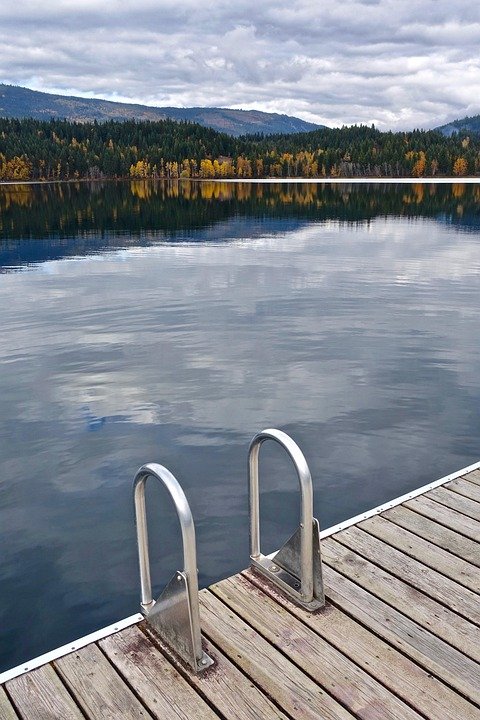Natural Gas vs. Propane Pool Heaters: Which Fuel Type Works Best for You?
When it comes to enjoying a refreshing dip in your pool, water temperature is crucial, especially in a location like Dubai where outdoor pools are a year-round attraction. If you’re considering the installation of a pool heater, choosing between natural gas and propane can significantly affect both your energy bills and your swimming experience. In this blog post, we will explore the key differences between these two fuel types, providing you with valuable insights to make an informed decision.
Why Pool Heating Matters in Dubai
In a place where temperatures soar during the summer and can drop significantly during the winter months, heated pools provide comfort and enhance your outdoor enjoyment. Heating your pool allows for extended use throughout the year, making your investment worthwhile.
Benefits of Pool Heaters
- Extended Swimming Season: A pool heater allows you to enjoy your pool during cooler months.
- Enhanced Comfort: Warmer water temperatures enhance your swimming experience.
- Increased Property Value: A heated pool can make your property more attractive to potential buyers or renters.
Understanding the Basics: Natural Gas and Propane
Before diving into a comparison, it’s crucial to understand what natural gas and propane are:
-
Natural Gas: A fossil fuel primarily composed of methane. It is supplied through pipelines and is often seen as a more environmentally friendly option as it produces fewer emissions.
- Propane: A byproduct of natural gas processing and oil refining. It is stored in tanks and is usually more energy-dense than natural gas.
Key Differences Between Natural Gas and Propane
| Feature | Natural Gas | Propane |
|---|---|---|
| Source | Supplied via pipelines | Stored in tanks |
| Energy Density | 1,000 BTU per cubic meter | 2,500 BTU per gallon |
| Cost | Usually lower; varies by region | Generally higher, but can fluctuate |
| Emissions | Emits fewer greenhouse gases | Cleaner than oil but higher than natural gas |
| Availability | Widely available in urban areas | Requires a tank; delivery dependent |
1. Installation Considerations
Natural Gas Pool Heaters
Natural gas pool heaters typically require a more complex installation process since they are connected to a natural gas line. Here are some key points to consider:
- Initial Setup: The installation includes connecting the heater to your home’s existing gas line, which can incur additional costs if a line is not readily available.
- Ventilation: Adequate ventilation is necessary to remove combustion gases, adding complexity to the installation.
- Long-term Costs: While the initial cost may be higher, the long-term operational costs tend to be lower due to the generally lower price of natural gas.
Propane Pool Heaters
Propane heaters are often simpler to install but come with some unique considerations:
- Tank Requirement: You will need to have a propane tank installed either above or below ground, depending on your space and aesthetic preferences.
- Delivery Logistics: Regular delivery of propane is required, which means you need to keep an eye on tank levels to avoid running empty.
- Cost of Fuel: The price of propane can vary significantly, and although it can be more expensive, it is typically more energy-efficient.
2. Performance and Efficiency
Natural Gas Efficiency
Natural gas heaters tend to heat up water slightly faster than propane and are generally more efficient for larger pools due to their continuous supply.
- Heating Time: Depending on the size of your pool, you can expect natural gas heaters to heat your water within a few hours.
- Efficiency Ratings: Look for models with higher efficiency ratings (measured in AFUE – Annual Fuel Utilization Efficiency). The higher the rating, the more cost-effective the heater will be over time.
Propane Efficiency
Propane heaters can be highly efficient but may take longer to warm up compared to natural gas heaters:
- Performance: They are particularly good for smaller pools or spas.
- Energy Density: Propane packs more energy per unit, allowing for faster heating on a per-gallon basis, but it may still take longer to achieve the desired temperature compared to natural gas.
3. Cost-Effectiveness
Natural Gas Fuel Costs
- Pricing Stability: Natural gas prices tend to be more stable and lower than that of propane.
- Long-Term Savings: If you use your pool heater frequently, you can enjoy significant savings over time, making natural gas the more economical choice.
Propane Fuel Costs
- Variability: Propane prices can vary widely based on global oil prices.
- Regular Costs: The necessity for regular delivery can add to the overall expense, particularly for homeowners with larger pools requiring consistent heating.
4. Environmental Impact
Natural Gas and Environmental Considerations
Natural gas is often viewed as the cleaner option when it comes to fossil fuels, emitting fewer carbon emissions in comparison to other non-renewable energy sources.
- Carbon Footprint: Emits around 50% fewer CO2 emissions compared to propane.
- Regulations: In many jurisdictions, transitioning to natural gas is encouraged for its overall reduced environmental impact.
Propane and Environment
While propane is cleaner than other fossil fuels such as coal or oil, it still emits greenhouse gases.
- Transition Potential: Propane can be a stepping stone to renewable energy solutions in future applications.
- Sustainability: Consider hybrid systems that can integrate solar heating with propane for a more sustainable operation.
5. Choosing the Right Option for You
Factors to Consider
When deciding between natural gas vs. propane pool heaters, consider the following:
- Existing Infrastructure: If your property already has a natural gas line, that may be the easiest and most cost-effective option.
- Usage Patterns: For frequent use, natural gas often provides more long-term savings.
- Space Availability: Consider where your heater will be located and whether you have the ability to install a propane tank.
- Budget: Factor both initial installation costs and ongoing fuel costs into your decision.
Conclusion: Finding Your Best Fit
In the battle of natural gas vs. propane pool heaters, there’s no blanket answer. It ultimately comes down to your unique situation, considering the availability of fuel, total upfront costs, and your personal preferences.
For homeowners in Dubai, Dream Floor Landscaping Services is here to help you explore your options in detail. Contact us today at +971563787002, and let our expert team assist you in selecting the perfect pool heater to enhance your outdoor oasis.
Whether you live in Palm Jumeirah, Arabian Ranches, or any of the other incredible communities within our service area, we are committed to providing top-notch landscaping and pool solutions designed to elevate your lifestyle.
If you found this guide helpful, subscribe to our blog for more insights into improving your home and outdoor living spaces. We look forward to helping you create the paradise you’ve always desired!
Note: Regular maintenance increases the lifespan of your pool heater. Consult with professionals for ongoing service and care.






